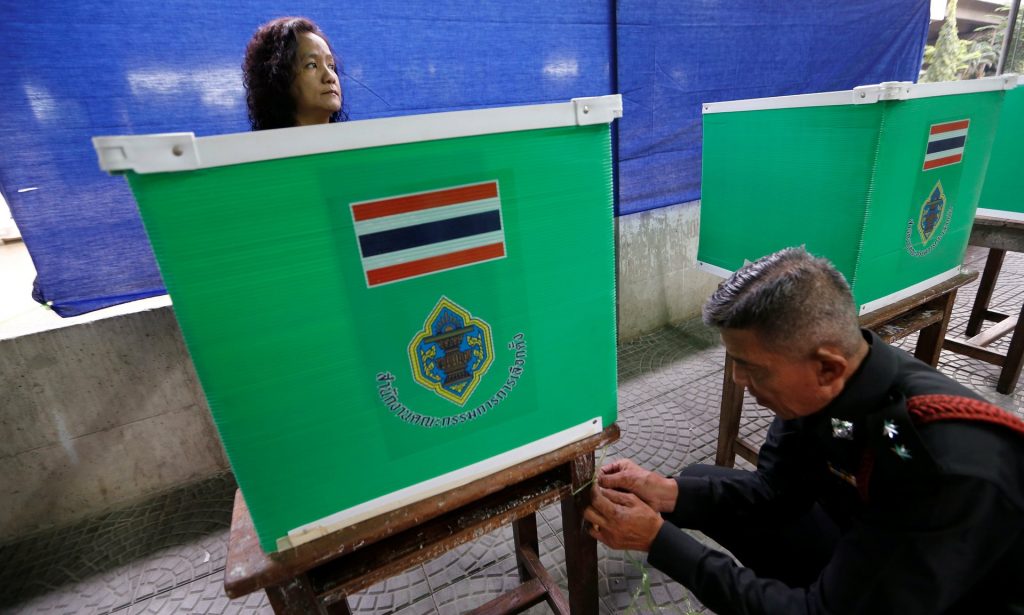
Photograph: Jorge Silva/Reuters
Thailand votes on Sunday in a referendum on a new junta-backed constitution that would pave the way for a general election in 2017 but require future governments to rule on the military’s terms.
The referendum is the first major popularity test for the junta led by Prayuth Chan-ocha, who as prime minister has suppressed political activity during the two years since he seized power in a coup in 2014.
Polls suggest a small lead in favour of accepting the new constitution but most voters remain undecided. There are 50 million eligible voters and the Election Commission is targeting a turnout of 80%. Preliminary results are expected in the evening.
Prayuth has said he will not resign if Thais reject the constitution and that a general election will take place next year no matter what the outcome.
“We need to hold a general election in 2017 because that is a promise we made,” he said ahead of the vote. “There has been no charter that pleases people 100%.”
Soldiers have toppled governments run by the powerful Shinawatra family twice in over a decade of political tumult in Thailand.
Critics say the charter is the military’s attempt to make good on their failure to banish former Thaksin Shinawatra, a former PM, and his brand of populism from Thai politics after the coup that removed him in 2006.
While Thaksin lives in self-imposed exile he retains a strong influence, particularly with his rural support base in the north. His sister Yingluck swept to power with an electoral landslide in 2011.
Thaksin called the charter a “folly” on Thursday, saying it would perpetuate the junta’s power and make it impossible to govern Thailand.
Under the constitution, which would be Thailand’s 20th since the military abolished an absolute monarchy in 1932, a junta-appointed senate with seats reserved for military commanders would check the powers of elected lawmakers.
“The military wants to conduct state affairs more or less under its supervision,” Gothom Arya, director of Mahidol University’s Research Center for Peace Building and a junta critic, told Reuters.
“The stakes are high when Thais vote this time.”
In the northeastern city of Khon Kaen, a former local leader of the “red shirt” Shinawatra supporters said the military wins either way on Sunday.
“Some people are fed up,” said Sabina Shah. “Fed up that regardless of whether or not the vote goes through, the junta is here to stay.”
The vote comes against the back-drop of concern about the health of King Bhumibol Adulyadej, 88. The military has for decades invoked its duty as defender of the deeply revered monarch to justify its interventions in politics.

